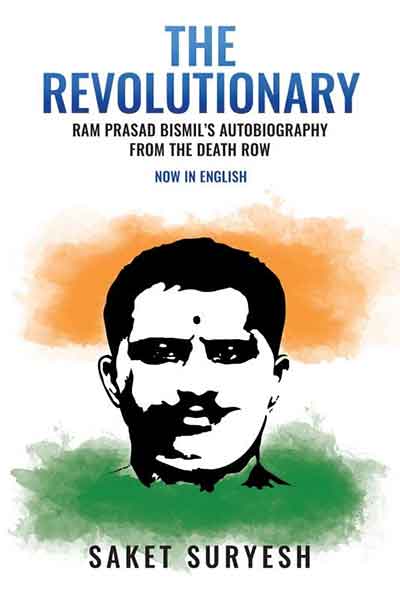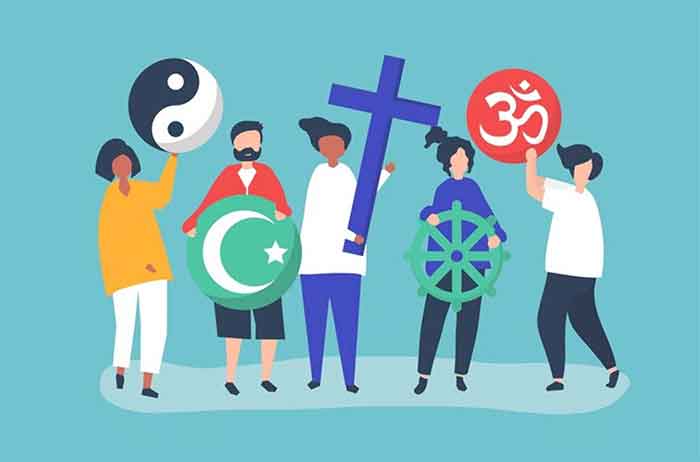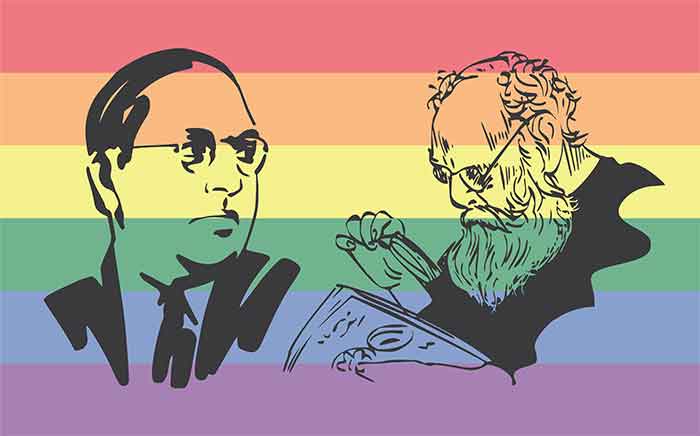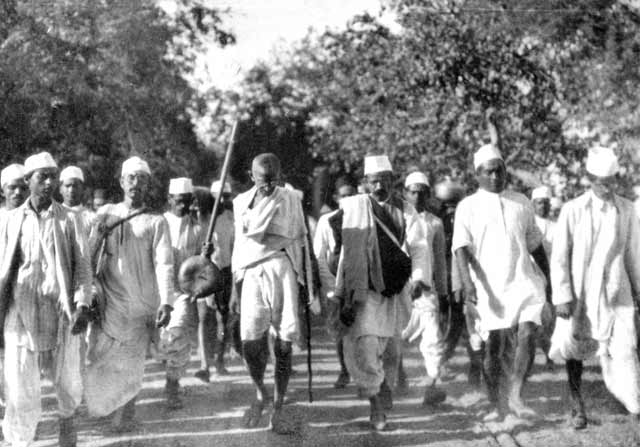
One of the most persistent messages being conveyed to youth is to contribute in meaningful and useful ways to the larger welfare and progress of the nation and society. However in order to be truly effective these messages need to be supported by what has been said by those persons for whom they have very high respect.
When we search for such inspiration figures or idols for whom students and youth of India have a lot of respect, then the name of participants in the revolutionary stream of the freedom figure very prominently in this list. This list is of course led by Shahid Bhagat Singh who is the most widely known and respected revolutionary freedom fighter among youth today.
Apart from him we need to look particularly at those other revolutionary freedom fighters ( like Ramprasad Bismil and Ashfaqullah Khan) who were profilic writers and so have left behind several documents, poems and songs which give us a good idea of the message they wanted to convey and leave behind them. A large number of youth admire them and also are familiar with them through exciting films like Rang De Basanti but at the same time perhaps several of them have not gone more deeply into the essential content of their messages.
It is interesting and useful to know that while revolutionary freedom fighters encourage and inspire the youth to work for their country and for the overall welfare of society, they do not want them to take a gun in hand to correct any injustice. In fact they caution them against this path. They want them to be close to the concerns of the weaker sections and to work for the welfare of exploited workers and farmers and to help them in numerous ways on a longer-term basis.
Bismil also suggests more practical ways of how youth can take up those means of livelihood which do not conflict with this higher and noble objective of life. These revolutionaries tell youth not to take an oversimplified and distorted lesson from their life ie immediately take a gun in hand to avenge injustice. They in fact advise against this and instead ask them to make a more durable commitment in terms of the welfare of workers, and farmers—serve the nation by working for weaker and exploited sections.
Revolutionary freedom fighters like Bhagat Singh were extremely studious persons and read an incredibly lot of books at a very young stage. They were also very selective about their readings and went to great lengths in their efforts to procure books which they found important and kept reading them very carefully and with great zest in prison, in fact even after knowing them about their death sentence.
In fact when prison officials came to summon Bhagat Singh for executing the death sentence, he was very busy reading the biography of Lenin! Bismil was so keen to make good books accessible to youth that he himself translated some great books from English to Hindi, apart from writing his own autobiography in prison (this had to be smuggled out with great difficulty for publication).
These revolutionaries asked youth time and again to read a lot to form their ideas carefully and carve out their path of serving the nation and its poorer people. In particular Bhagat Singh advised youth not to follow anyone, not even him, blindly and to find their path on the basis of study and reason.
These freedom fighters were united in placing a lot of emphasis on the unity of people of all faiths and religions and on communal harmony. They were very critical of colonial rulers and local communal forces who tried to break the unity and harmony of Indian people. Bhagat Singh also expressed his admiration for the fraternity and friendship of all people of world, free from the problems created by exploitation and colonialism.
These freedom fighters are very inspiring in terms of their very high levels of commitment to their ideals and their willingness to make any sacrifice for their ideals. Their life is their message.
Keeping in view the importance of the message left behind by revolutionary freedom fighters as well as the ready acceptance of these revolutionary freedom fighters as source of high inspiration by youth today, it will be very useful to promote a more serious study of the message of these revolutionary freedom fighters among youth today.
However while learning from revolutionaries youth should certainly keep in mind the chronology of events and contemporary context. Hence they will find that great revolutionaries like Bismil and Bhagat Singh very quickly outgrew the culture of the gun and plead very strongly for longer-term, durable work among farmers and workers and they also star appreciating the great value of non-violence in longer –term struggles and commitments, and the similarities with satyagraha approach cannot be missed in the prolonged fast and accompanying greatest struggle of Bhagat Singh and his colleagues in jail.
In this context of the freedom struggle I will like to make a strong plea not to rely too much on Hindi popular films to learn in a serious way about the revolutionaries, although the inspirational value of the better-made films can be accepted. For example the songs and music of the version of Shaheed made by Manoj Kumar a long time back have made a great and durable inspirational impact , thanks largely to the genius of Prem Dhawan.
Secondly, the contemporary context should not allow us to forget that environmental issues which are of such crucial importance today did not figure very directly in the agenda at that time. So while learning from these great freedom fighters we should also add the new priorities of present-day world like crucial environmental issues.
Bharat Dogra is a journalist and author. His recent books on freedom movement as co-author include When the Two Streams Met and Azadi Ke Deewanon Ki Daastaan.
GET COUNTERCURRENTS DAILY NEWSLETTER STRAIGHT TO YOUR INBOX

















































